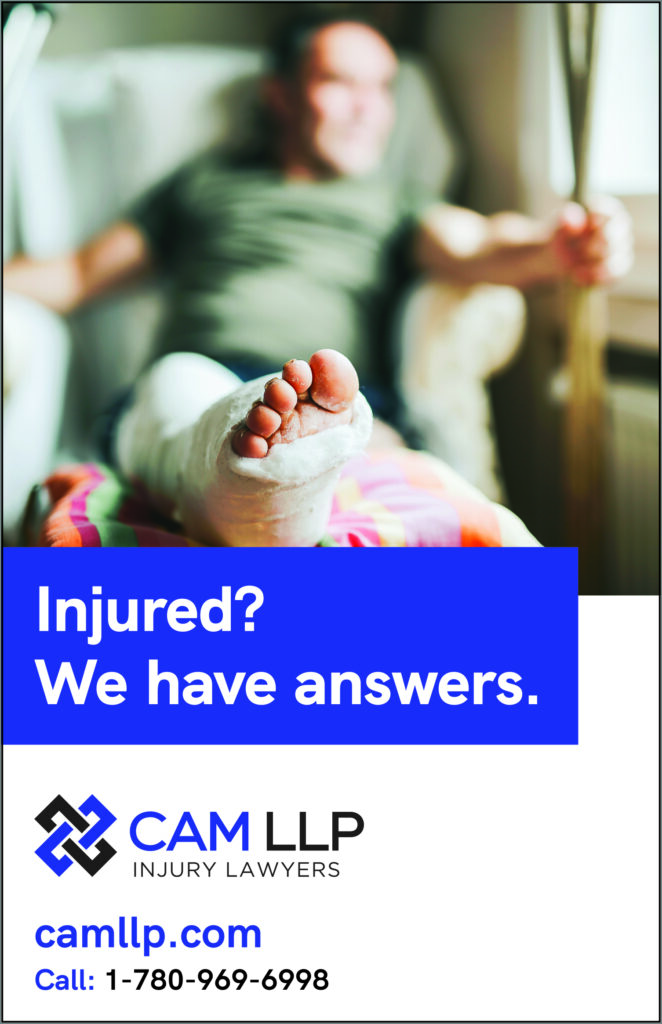By Ronald Jewitt
(ANNews) – Personal injury claims can be complicated due to issues of proving fault, medical evidence, and how your injuries affect your life. Also, dealing with insurance companies to get any kind of compensation is stressful. The key to not getting overwhelmed is organizing the necessary information and finding the right lawyer to help you.
If you are dealing with a serious or life-changing injury, you need a combination of a high level of legal expertise, advocacy and client care – that means a law firm with experience successfully handling a wide range of personal injury cases. Even then, the quality of advice and guidance you get from start to finish of an injury claim is based on the information you provide to your lawyer.
Try not to self-edit the information you give your lawyer. Lawyers are trained to assess facts and evidence and to identify what is relevant. You may think something isn’t important when, in fact, it is. So, provide as much information as you can about the incident and your injuries. The rest of this article describes some things you can do to help your lawyer put your best case forward.
Information you will need
At an initial consultation, an experienced injury lawyer will walk you through collecting the facts and evidence they need to advise you on your options and to pursue a lawsuit. However, you can make the process easier on yourself by pulling together information you have about the incident and its impact on you even before that initial call.
That information includes:
- Your insurance documents (e.g., car and health insurance documents, including WCB)
- Written statements you made about the incident. Include date, location, time of the incident, and a detailed description of how the accident happened. Helpful details include the weather, driving conditions, state of the road, obstacles or events that contributed to the accident (e.g., construction, animals crossing, lack of visible signage).
- Written statements made by anyone else about the incident (e.g., police reports, witness statements).
- Handwritten documents from the incident scene given to you by other parties (e.g., insurance and contact details from the other driver).
- Photographs of the accident scene.
- Photographs of your injuries from the incident.
- Receipts and invoices for out-of-pocket expenses you have paid because of your injuries.
- Copies of any Proof of Claim forms you and your doctor have completed for your insurance company.
- Copies of your Employer’s Confirmation of Income and Benefits forms which your employer has completed for your disability insurer (if you have one).
Other helpful information to have on hand
- Names and contact details of any witnesses.
- Did the police come to the scene? If yes, is there a police report?
- Did an ambulance come to the scene, and were you taken to hospital? If yes, which hospital and who did you see (if you know)?
- List your healthcare providers (e.g., doctors, chiropractors, physios) with contact details.
- Did you receive medical care at the time of the accident (provide details), and have you been receiving treatment since (provide details).
- Do you have any pre-existing injuries or conditions? Insurance companies may try to claim that your injuries are the result of something besides the accident. Even if you were not 100% before the incident, that does NOT mean you are not entitled to compensation, but you should tell your lawyer everything about your physical and mental health before the incident so that they can protect your interests. Also, let your lawyer know about any injuries you have had after the incident.
- Details of your employment at the time of the accident (e.g., name of employer, job, and wages/salary/commissions).
- How much time were you forced to take off work, or are you still off work?
- f you are a business owner or self-employed, gather information about your financial losses (if you don’t know how to start, don’t worry, your lawyer will help you).
- Tell your lawyer about any social media accounts you have. Your lawyer needs to know what is out in the public domain that may present problems that need to be addressed. It’s better to be prepared to meet an argument than to be surprised.
Keep Track of Your Recovery Process
You will also want to keep track of any medical appointments you have had in connection with your injuries (e.g., doctors, physios, chiropractors, massage therapists, dentists, and acupuncturists). Keep all receipts for any expenses incurred from the accident and during your recovery. It’s a good idea to start a file folder where you can keep all receipts, treatment instructions and appointments with doctors or specialists in one place.
This may sound like a lot of paper, and it can be, especially if your claim is serious and extends for a long time. But don’t worry. An experienced lawyer will help you organize all the documents and information and guide you in getting the medical treatment and rehabilitation you may need.
As Your Claim Proceeds, Stay in Touch
If you have been seriously injured, it can take significant time before your claim is resolved. This is because your injuries need to plateau or resolve before it’s possible to accurately figure out what compensation you are owed.
It is essential to stay in touch with your lawyer during your recovery and after any return to work. That includes informing them about all medical appointments with doctors, specialists, and surgeons and any return-to-work arrangements.
About CAM LLP experienced personal injury lawyers
At CAM LLP, we take the stress out of dealing with the claims process so you can focus on recovery. Years of experience evaluating claims, negotiating settlements with insurance companies, and helping injured people get fair compensation makes a difference. If you need help, contact us for a free consultation.
Ronald Jewitt is a partner at CAM LLP. Click here for information.




Be the first to comment on "Injury claim information your lawyer needs to help you"